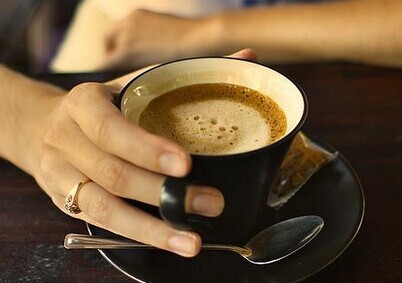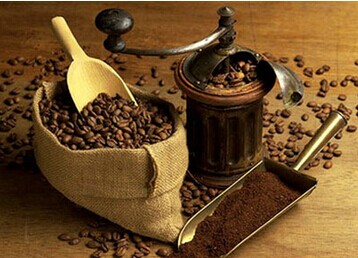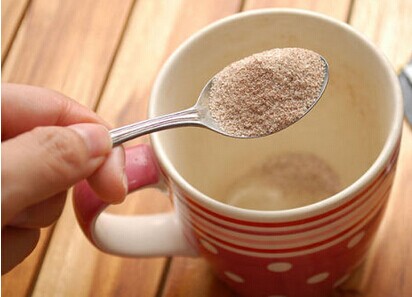Why do all kinds of medical experts "spoil" coffee?

A survey shows that 70% of the Chinese people drink coffee, and 30% of them have formed the habit of drinking coffee every day. However, since childhood, we have been nurtured in the fragrant and pleasant "tea culture", and always feel that the bitter and rich Western-style "coffee culture" is a little separated. Many people mention "caffeine" as if facing the enemy,"drinking coffee leads to calcium loss, easy to suffer from osteoporosis" reports also let us not hesitate to throw it into the ranks of "bad drinks". What is the impact of coffee on health?
The second largest drink after water

After oil, the oldest and most traded commodity in the world is coffee. In western countries, people holding a cup of coffee and hurrying to work can be seen everywhere on the street in the morning. Starbucks has blossomed everywhere in China, and even many elderly people can recognize its "banshee" logo at a glance. According to the International Coffee Organization statistics, the world consumes 400 billion cups of coffee every year, every second, the world has 14,000 cups of coffee is drunk, coffee has become the world's second largest drink after water.
Finns are among the world's most coffee drinkers, consuming 12kg of coffee per capita in 2008. Coffee is gaining popularity even in some tea-culture Asian countries, with Japan overtaking Germany as the world's second-largest coffee consumer. More than half of Americans drink coffee every day, and nearly nine in 10 eat coffee with breakfast. In contrast, coffee in China, although "visibility" is high, but "acceptance" is not very high. According to the survey, the average Chinese consumes less than 100 cups of coffee per person per year. Coffee drinkers accounted for 56 per cent of men and 44 per cent of women. Among them, 41 - 50 years old people accounted for the most, accounting for 24%, followed by 21 - 30 years old people, accounting for 18%.
Einisto Ely, co-founder of the Coffee Science Information Society, points out that coffee has been misunderstood in the past and has only been considered a health drink for more than a decade. More and more people found that coffee not only contains caffeine, but also rich in protein, fat, nicotinic acid, tannic acid, alkaloids, potassium, dietary fiber and other nutrients.
Coffee's unknown benefits

Professor Hu Dayi, a famous cardiovascular expert in China, once wrote a book called "101 Reasons for Coffee Innocence" with Mario Marao, former president of the World Heart Federation. Coffee protects the heart better than wine, the book says, if drunk properly and regularly. Li Weimin, president of the First Affiliated Hospital of Harbin Medical University and director of cardiovascular medicine, told reporters that caffeine can improve the systolic function of the left ventricle and coronary artery blood flow, so drinking coffee in moderation can protect the heart and reduce the occurrence of cardiovascular disease. For those worried about an increased heart rate, he recommends 1 to 2 cups a day, and 1 cup for the elderly. Don't be too thick, try to add little or no sugar.
In addition to being "favored" by cardiovascular experts, coffee is also respected by many other medical experts.
Coffee can prevent cancer. Liu Jinying, deputy director of Nutrition Department of Cancer Hospital of Chinese Academy of Medical Sciences, recommends that polyphenols contained in coffee are a strong antioxidant. Drinking coffee every day has a certain effect on cancer prevention and treatment.
Coffee protects the liver. "Coffee is rich in polyphenols that also have a protective effect on the liver." Liu Jinying suggested that hepatitis patients drink coffee every day, which is very good for the repair of liver cells. Japanese experts found that coffee in addition to nourishing liver, but also hangover, which chlorogenic acid can avoid alcoholism.
Coffee prevents type 2 diabetes. Numerous studies have shown that coffee drinkers have a lower incidence of type 2 diabetes because certain substances in coffee reduce the rate of glucose absorption in the intestine and change where glucose is absorbed.
Coffee helps digestion. Tao Lin, deputy chief physician of the spleen and stomach disease department of Beijing Hospital of Traditional Chinese Medicine affiliated to Capital Medical University, told reporters that people who love meat had better drink a cup of coffee after meals, which has a good effect of relieving grease and helping digestion. In addition, the soluble dietary fiber content in coffee is higher than orange juice, and caffeine can also stimulate intestinal tract and accelerate peristalsis. Therefore, drinking coffee has the effect of relieving constipation.
Coffee prevents depression. People who drink coffee regularly will feel happy and less irritated after drinking, and their mood will improve. Li Weimin pointed out that when you are upset or depressed, drinking a cup of coffee can really calm your mood.
Coffee is an exercise companion. Two cups of coffee after exercise can help relieve muscle soreness, according to research from the University of Georgia.
It's healthiest to drink after dinner.

Coffee has many benefits, but it works when drunk right.
Pick: Beware of "junk coffee." Three-in-one instant coffee is the most typical "junk coffee". Among them, coffee mate contains harmful trans fatty acids, which can increase the risk of heart disease and diabetes. The best way is to drink coffee freshly ground from coffee beans. Generally speaking, the longer the coffee beans are roasted, the more nutrients are lost, and the more bitter the coffee tastes, and it also has a burnt taste. And light roast coffee, sour taste and heavy. Moderately roasted coffee beans are best, with moderate bitterness and health benefits. Fan Zhihong, associate professor at the School of Food Science and Nutritional Engineering at China Agricultural University, suggests that it is best to add whole milk to coffee, put 2/3 cups of coffee, pour 1/3 of milk, do not need sugar, taste good and healthy.
Drink: 2 cups a day after meals. Fan Zhihong suggested that the total daily caffeine intake should not exceed 250 mg, equivalent to drinking 2 cups of coffee. Li Weimin reminds, excessive drinking coffee can cause the heart to beat violently, even appear trance, walk center of gravity instability and other phenomena. Tao Lin suggests that drinking coffee is best after breakfast and lunch to reduce gastrointestinal irritation. It is best not to drink after dinner, so as not to affect sleep.
Important Notice :
前街咖啡 FrontStreet Coffee has moved to new addredd:
FrontStreet Coffee Address: 315,Donghua East Road,GuangZhou
Tel:020 38364473
- Prev

Let the freshly ground coffee wake you up with the Barisieur coffee machine alarm clock.
September 10 news, early in the morning, when the alarm clock wakes you up, you just want to refresh yourself with a cup of coffee. If a strong cup of freshly ground coffee appeared in front of you at this time, would your eyes be filled with tears? And this is the Barisieur coffee machine alarm clock designed by British designer Joshua Renouf that brings you unprecedented sweetness. Like most coffee machines with built-in alarms.
- Next

The first national professional laboratory for coffee products was established in Yunnan.
Through the on-the-spot examination and acceptance by the AQSIQ, the reporter learned from the Yunnan entry-exit Inspection and Quarantine Bureau yesterday that the Pu'er entry-exit Inspection and Quarantine Bureau affiliated to the bureau declared that the national key laboratory for coffee testing (Pu'er), which was planned to be built, passed the on-site examination and acceptance of the AQSIQ examination and acceptance team on September 5. This marks the birth of the only national professional laboratory for coffee products in our province.
Related
- Workers collapse! Lucky suspects that it will introduce freshly cut fruits?!
- 1-point subsidy recipients wear thousand-yuan watches?! Local response: For low-income households
- Can lightly roasted coffee beans be used to extract espresso? How finely should you grind high-quality coffee beans to make Italian latte?
- What is the difference between the world's top rose summer coffee and Yejia Shefi? What are the flavor characteristics of Yega Shefi coffee and Panama rose summer?
- The ceremony is full! Starbucks starts to cut the ribbon at a complimentary coffee station?!
- A whole Michelin meal?! Lucky launches the new "Small Butter Apple Crispy Latte"
- Three tips for adjusting espresso on rainy days! Quickly find the right water temperature, powder, and grinding ratio for espresso!
- How much hot water does it take to brew hanging ear coffee? How does it taste best? Can hot water from the water dispenser be used to make ear drip coffee?
- What grade does Jamaica Blue Mountain No. 1 coffee belong to and how to drink it better? What is the highest grade of Blue Mountain coffee for coffee aristocrats?
- What are the flavor characteristics of the world-famous coffee Blue Mountain No. 1 Golden Mantelin? What are the characteristics of deep-roasted bitter coffee?

